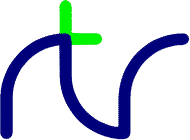
This program displays a 'tumbling' gold pyramid, lit from the front by a single point-source light, to demonstrate the capabilities of the Direct3D lighting engine and the ease with which it can be used from BBC BASIC for Windows. It requires DirectX™ 9.0 or later to be installed on your PC. Updated to include specular reflections.
| Download LIGHTING.BBC | Run LIGHTING.EXE |
|---|
REM. Program to demonstrate lighting and specular reflection
MODE 8
INSTALL @lib$+"D3D9LIBA"
ON CLOSE PROCcleanup : QUIT
ON ERROR PROCcleanup : SYS "MessageBox", @hwnd%, REPORT$, 0, 48 : QUIT
ON MOVE IF @msg% <> 5 RETURN ELSE PROCcleanup : CLEAR
VDU 20,26,12
DIM pVB%(0), nv%(0), vf%(0), vl%(0), l%(0), m%(0), t%(0), y(0), p(0), r(0)
DIM X(0), Y(0), Z(0), eye(2), at(2), n(2)
REM. Initialise Direct3D:
pDevice% = FN_initd3d(@hwnd%, 2, 1)
IF pDevice% = 0 ERROR 100, "Couldn't initialise Direct3D"
SYS !(!pDevice%+228), pDevice%, 29, 1 : REM D3DRS_SPECULARENABLE
REM. Create 3D object with surface normals:
F% = OPENOUT(@tmp$+"lighting.fvf")
BPUT #F%,18 : BPUT#F%,0 : BPUT #F%,0 : BPUT#F%,0 : REM number of vertices
BPUT #F%,&12 : BPUT #F%,0 : BPUT#F%,24 : BPUT#F%,0 : REM vertex format and size
FOR V% = 0 TO 5
READ x1, y1, z1, x2, y2, z2, x3, y3, z3
a = x2 - x3
b = y2 - y3
c = z2 - z3
d = x1 - x3
e = y1 - y3
f = z1 - z3
n(0) = b*f-c*e
n(1) = c*d-a*f
n(2) = a*e-b*d
n() /= MOD(n())
PROC4(F%,x1) : PROC4(F%,y1) : PROC4(F%,z1) : REM xyz coordinates
PROC4(F%,n(0)) : PROC4(F%,n(1)) : PROC4(F%,n(2)) : REM surface normal
PROC4(F%,x2) : PROC4(F%,y2) : PROC4(F%,z2) : REM xyz coordinates
PROC4(F%,n(0)) : PROC4(F%,n(1)) : PROC4(F%,n(2)) : REM surface normal
PROC4(F%,x3) : PROC4(F%,y3) : PROC4(F%,z3) : REM xyz coordinates
PROC4(F%,n(0)) : PROC4(F%,n(1)) : PROC4(F%,n(2)) : REM surface normal
NEXT
CLOSE #F%
REM. Load 3D object:
pVB%(0) = FN_load3d(pDevice%, @tmp$+"lighting.fvf", nv%(0), vf%(0), vl%(0))
IF pVB%(0) = 0 ERROR 101, "Couldn't load 'lighting.fvf'"
REM. Point-source light:
DIM light{Type%, Diffuse{r%,g%,b%,a%}, Specular{r%,g%,b%,a%}, \
\ Ambient{r%,g%,b%,a%}, Position{x%,y%,z%}, Direction{x%,y%,z%}, \
\ Range%, Falloff%, Attenuation0%, Attenuation1%, Attenuation2%, \
\ Theta%, Phi%}
light.Type% = 1 : REM. point source
light.Diffuse.r% = FN_f4(1) : REM. diffuse colour RGB
light.Diffuse.g% = FN_f4(1)
light.Diffuse.b% = FN_f4(1)
light.Specular.r% = FN_f4(1) : REM. specular colour RGB
light.Specular.g% = FN_f4(1)
light.Specular.b% = FN_f4(1)
light.Position.x% = FN_f4(0) : REM. position XYZ
light.Position.y% = FN_f4(0)
light.Position.z% = FN_f4(-4)
light.Range% = FN_f4(10) : REM. range
light.Attenuation0% = FN_f4(1) : REM. attenuation (constant)
l%(0) = light{}
REM. Gold-coloured material:
DIM material{Diffuse{r%,g%,b%,a%}, Ambient{r%,g%,b%,a%}, \
\ Specular{r%,g%,b%,a%}, Emissive{r%,g%,b%,a%}, Power%}
material.Diffuse.r% = FN_f4(1) : REM. diffuse colour RGB
material.Diffuse.g% = FN_f4(0.7)
material.Diffuse.b% = FN_f4(0)
material.Specular.r% = FN_f4(1) : REM. specular colour RGB
material.Specular.g% = FN_f4(1)
material.Specular.b% = FN_f4(1)
material.Power% = FN_f4(20): REM. specular 'power'
m%(0) = material{}
REM. Render the tumbling object:
eye() = 0, 0, -9
at() = 0, 0, 0
REPEAT
y() = TIME/200
r() = TIME/80
PROC_render(pDevice%, &7F7F7F, 1, l%(), 1, m%(), t%(), pVB%(), nv%(), vf%(), vl%(), \
\ y(), p(), r(), X(), Y(), Z(), eye(), at(), PI/6, @vdu%!208/@vdu%!212, 1, 1000, 0)
UNTIL INKEY(1)=0
END
DEF PROCcleanup
pVB%(0) += 0 : IF pVB%(0) PROC_release(pVB%(0))
pDevice% += 0 : IF pDevice% PROC_release(pDevice%)
*REFRESH ON
ENDPROC
DEF PROC4(F%,a) : LOCAL A% : A%=FN_f4(a)
BPUT #F%,A% : BPUT #F%,A%>>8 : BPUT#F%,A%>>16 : BPUT#F%,A%>>24
ENDPROC
REM. Pyramid (6 triangles each with three vertices):
DATA -1, -1, 1, -1, -1, -1, 0, .414, 0
DATA 1, -1, 1, -1, -1, 1, 0, .414, 0
DATA 1, -1, -1, 1, -1, 1, 0, .414, 0
DATA -1, -1, -1, 1, -1, -1, 0, .414, 0
DATA 1, -1, -1, -1, -1, -1, -1, -1, 1
DATA -1, -1, 1, 1, -1, 1, 1, -1, -1